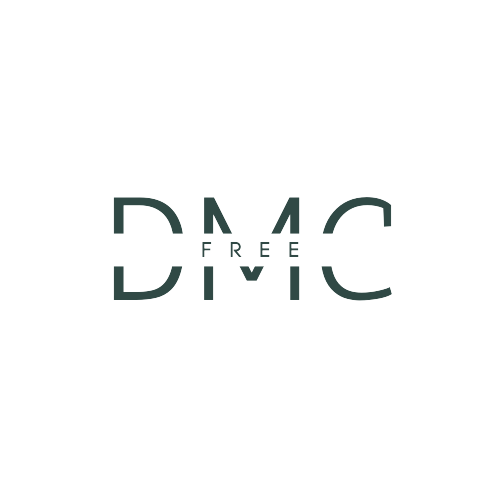
As organizations progressively embrace the digital realm, the cloud has emerged as the cornerstone of modern technology infrastructure. Cloud Engineers are thus instrumental in navigating this dynamic landscape, ensuring seamless transitions and optimal implementations of cloud-based solutions. This guide aims to provide a thorough understanding of what it means to be a Cloud Engineer in 2023, delving into the core responsibilities, qualifications, and learning pathways available.
Table of Contents
Introduction to Cloud Engineering
Cloud Engineering is a discipline focused on the application of engineering principles to cloud computing. It involves the design, development, maintenance, and support of cloud-based applications and infrastructure. Cloud Engineers play a crucial role in transforming traditional IT infrastructure into scalable and agile cloud environments.
Core Responsibilities of a Cloud Engineer
Cloud Engineers shoulder a range of responsibilities, contributing to the multifunctionality and integration of cloud services within an organization. These include:
- Design and Deployment: Crafting and instituting tailored cloud solutions to meet organizational requirements.
- Maintenance and Support: Ensuring the consistent performance and reliability of cloud infrastructures through proactive management and optimization.
- Security and Compliance: Safeguarding cloud-based assets through the implementation of stringent security protocols and compliance measures.
- Interdisciplinary Collaboration: Facilitating synergy among various IT domains to achieve cohesive and efficient cloud service integration.

Comparative Salary Analysis
The compensation for Cloud Engineers is reflective of the specialized skills and expertise required for the role. Here’s a comparative analysis of average salaries across top US states and countries:
Top US States
| State | Average Salary (USD) |
|---|---|
| California | 128,000 |
| Washington | 124,000 |
| New York | 120,000 |
| Massachusetts | 118,000 |
| Texas | 116,000 |
Top Countries
| Country | Average Salary (USD) |
|---|---|
| United States | 122,000 |
| Switzerland | 110,000 |
| Germany | 98,000 |
| Australia | 94,000 |
| Canada | 92,000 |
How Much Do Full-Stack Web Developers Make?
In juxtaposition, Full-Stack Web Developers, proficient in both front-end and back-end technologies, command an average annual salary of around $105,000 in the United States, showcasing the competitive nature of IT roles.
Essential Qualifications and Skills
Aspiring Cloud Engineers need to equip themselves with a blend of educational credentials, technical skills, and certifications:
- Educational Background: A foundational bachelor’s degree in Computer Science, Engineering, or related fields is typically necessitated.
- Technical Skills: Mastery of cloud platforms such as AWS, Azure, or Google Cloud, coupled with adeptness in programming languages like Python, Java, or C#, is imperative.
- Certifications: Securing industry-recognized certifications, such as AWS Certified Solutions Architect or Google Cloud Certified – Professional Cloud Architect, can bolster one’s candidacy.

Free Learning Resources and Pathways
For those seeking economical learning avenues, platforms like Coursera and edX proffer a plethora of courses. Moreover, leading cloud service providers like AWS and Google Cloud extend comprehensive free training resources and documentation.
Pathway to Become a Web Developer
Venturing into web development can serve as a foundational step towards specializing in cloud engineering. Platforms like FreeCodeCamp offer extensive guides and resources, facilitating the acquisition of fundamental web development skills.
Securing Cloud Engineering Jobs
Embarking on a career in cloud engineering involves a multifaceted approach to secure Cloud Engineering jobs. Start with a solid educational foundation in a relevant field, followed by acquiring essential technical skills and pursuing industry-recognized certifications. Gaining hands-on experience and building a robust portfolio will enhance your employability. Networking, continuous learning, and staying updated on industry trends are also pivotal. Once prepared, apply for positions, tailor your resume for each opportunity, and practice for interviews. Following these steps diligently can help you secure a job in the cloud engineering field and foster a successful career in this evolving domain.
Conclusion
The realm of Cloud Engineering is multifarious and continually evolving, presenting a plethora of opportunities for individuals armed with the requisite knowledge and skills. This guide endeavors to illuminate the path for those aspiring to delve into this field in 2023, elucidating the roles, responsibilities, qualifications, and learning trajectories pertinent to a Cloud Engineer. Whether contemplating the financial prospects of Full-Stack Web Developers or aspiring to become a Web Developer, exploring Cloud Engineering can significantly enhance career prospects.
FAQ’s
Q. What does a cloud engineer do?
A cloud engineer is responsible for designing, deploying, managing, and maintaining cloud-based applications and infrastructure. They work closely with IT teams and developers to optimize cloud services, ensure security compliance, and facilitate the smooth integration of cloud solutions within an organization.
Q. Does a cloud engineer need coding?
Yes, a cloud engineer often needs coding skills. Proficiency in programming languages such as Python, Java, or C# is crucial for automating cloud services, developing cloud applications, and scripting solutions for operational needs within the cloud environment.
Q. Is cloud engineering hard?
Cloud engineering can be challenging, given the rapidly evolving nature of cloud technologies and the diverse range of skills required. However, with the right education, training, and hands-on experience, aspiring cloud engineers can effectively navigate and excel in this dynamic field.
Q. Do Cloud Engineers get paid well?
Yes, Cloud Engineers are generally well-compensated. Their salaries are reflective of the specialized skills and expertise they bring to the table. Compensation can vary depending on the location, level of experience, and the specific demands of the role.
Q. What skills do cloud engineers have?
Cloud engineers possess a wide array of skills, including expertise in cloud platforms like AWS, Azure, or Google Cloud, proficiency in programming and scripting languages, knowledge of containerization and orchestration tools, understanding of CI/CD pipelines, and awareness of security and compliance standards.
Q. Is cloud engineer a good career?
Absolutely, a career as a cloud engineer is considered promising due to the growing reliance on cloud services across industries. The role offers competitive compensation, opportunities for career advancement, and the chance to work on innovative and impactful projects.


